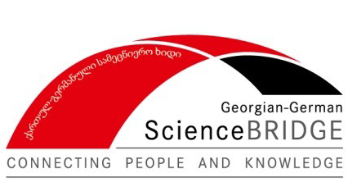GGSB Meeting @HZDR - QUALI-Start-Up Lectures
Helmholtz-Zentrum Dresden-Rossendorf (HZDR)

Background: The Georgian-German Science Bridge (GGSB) was initiated to act as an umbrella encompassing the multitude of activities between a consortium of Georgian univesities (AUG, GTU, ISU, KIU and TSU) and institutes of Forschungszentrum Jülich (FZJ). The objective of the GGSB is to connect scientists from both countries via common research projects and students through education and exchange programs, thus fostering mutual Georgian-German scientific and cultural relations. After the COVID-19 pandemic, a successful restart of GGSB has been achieved with two more German Helmholtz Centres -- the GSI Helmholtz Zentrum for Heavy Ion Research and the Helmholtz Zentrum Dresden-Rossendorf (HZDR) -- joining GGSB.
Education: As part of the GGSB concept, in 2013 and 2015 educational programmes for Georgian students have been conducted in the so-called “Autumn Lectures” (http://fz-juelich.gtu.ge/autumn-lectures) at the Georgian Technical University as well as “Workshops and Summer Schools” at different locations in Georgia in every even year, which started in 2004 and continues until today. Recently (September 2024), we had a GGSB “Science Fest” event, which was also 10th Workshop (GGSWBS), commemorating the 20th anniversary of GGSB (https://events.hifis.net/event/1339/). The event highlighted the progress and achievements made in research, education and exchanges personnel and culture during the first two decades.
In 2017, a new longer-term initiative has been started, which we call qualified and qualification lecture course (“QUALI-Start-Up”). It was conducted a second time in 2019, again at FZJ. The content of this training courses were in the fields of basic science and included lectures in experimental and theoretical physics, chemistry, mathematics, life sciences and health, engineering science with emphasis on the application of technologies. The course was conducted by leading scientists of six FZJ institutes (IEK, IKP, INM, PGI, ZEA, IAS) and included theoretical as well as practical trainings at forefront experimental and technological facilities of FZJ.
QUALI-Start-Up Lectures #3: As a continuation, we organize a third lecture course in Summer 2025 at HZDR (Rossendorf/Dresden, Germany). Besides the motivation to provide access to a wide range of modern infrastructure at HZDR, students will certainly be impressed by the advanced techniques and by being able to do hands-on training in different scientific disciplines in a very concise and effective manner. At the same time the students should become acquainted with the requirements needed to be successful in possible subsequent studies at HZDR, at the nearby OncoRay (National Center for Radiation Research in Oncology) facility at Dresden or at other Helmholtz centres.
The course will be conducted by leading scientists of the institutes of HZDR, FZJ, GSI and will include theoretical as well as practical training's at outstanding experimental and technological facilities of HZDR. This event is in line with the intention of Helmholtz centres and Georgian universities participating in GGSB to continue their scientific and technological cooperation in the fields of:
(i) fundamental particle, nuclear and astro-physics
(ii) medical imaging -- physics and biomedical applications
(iii) atmospheric sciences and environment
(iv) engineering and technology
(v) new fields (e.g. AI/machine learning, agricultural science)
The targeted group of Georgian students – about 20 students in total – will be pre-selected with regard to their qualifications by the Georgian universities first. The final selection of the students for the QUALI-Start-Up training course will be done in close assistance with a selection panel consisting of supervisors from the corresponding Georgian universities and leading scientists/directors of Helmholtz centres (FZJ, GSI, HZDR).
For Accommodation in Dresden we recommend the following hotels in the city center:
Best Western Plus Hotel: https://www.bestwestern-hotel-dresden.de/
Apart Hotel Mitte: https://www.aparthotel-mitte.de/home.html
Meininger Hotel Dresden Zentrum: https://www.meininger-hotels.com/en/hotels/dresden/
Ibis Hotel Dresden: https://www.ibis-dresden.de/
Accommodation for students is foreseen in the HZDR Guest House (https://www.hzdr.de/db/Cms?pOid=60937&pNid=3068&pLang=en), which will be provided free of charge
